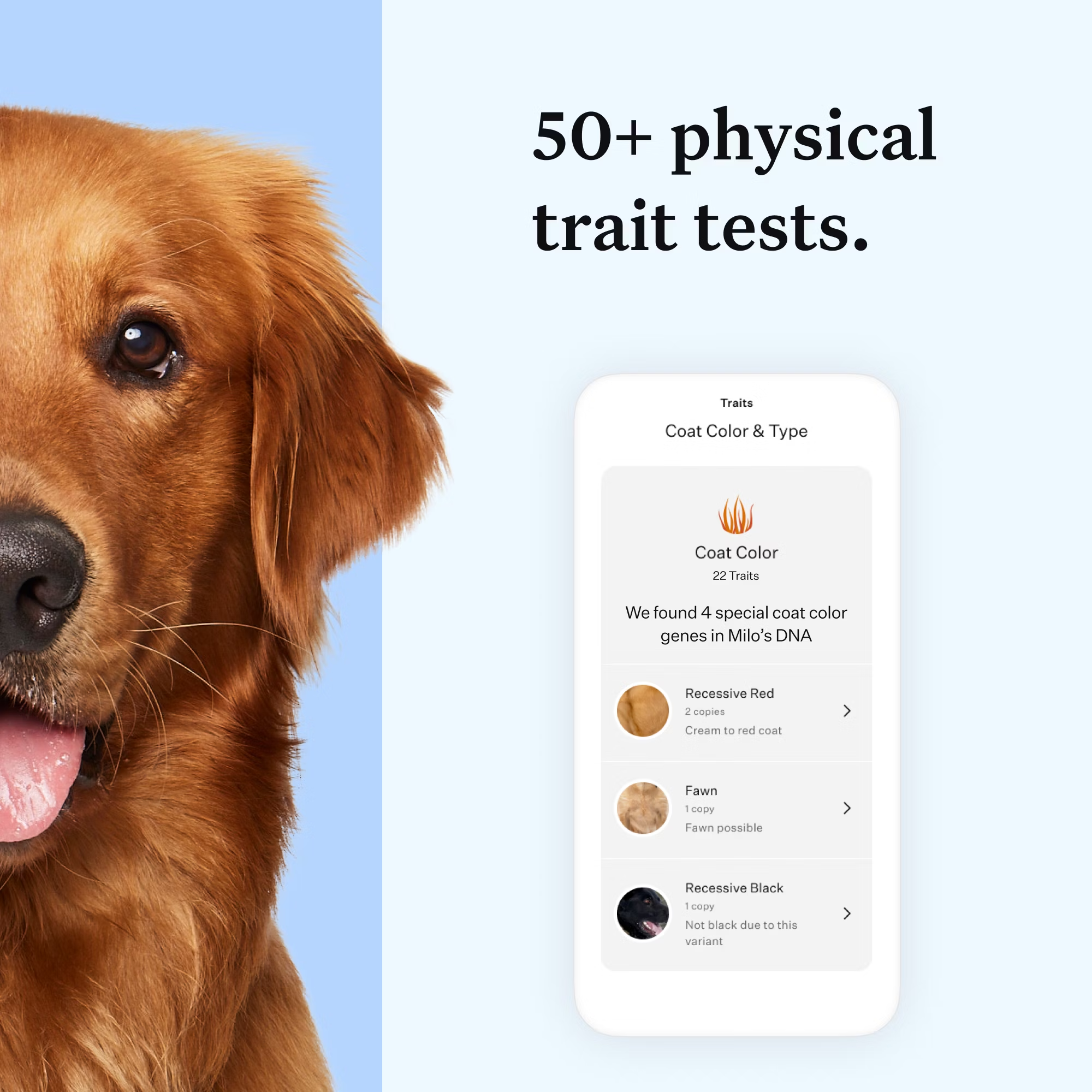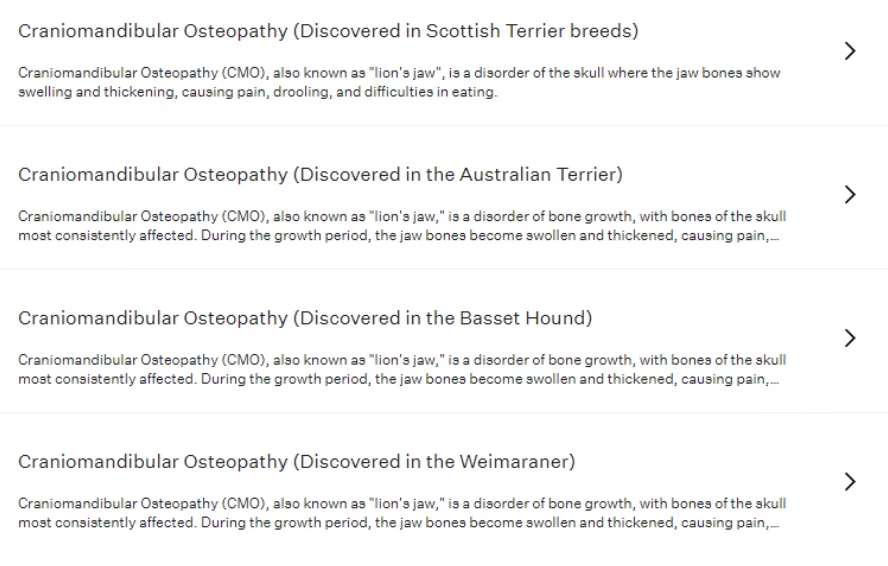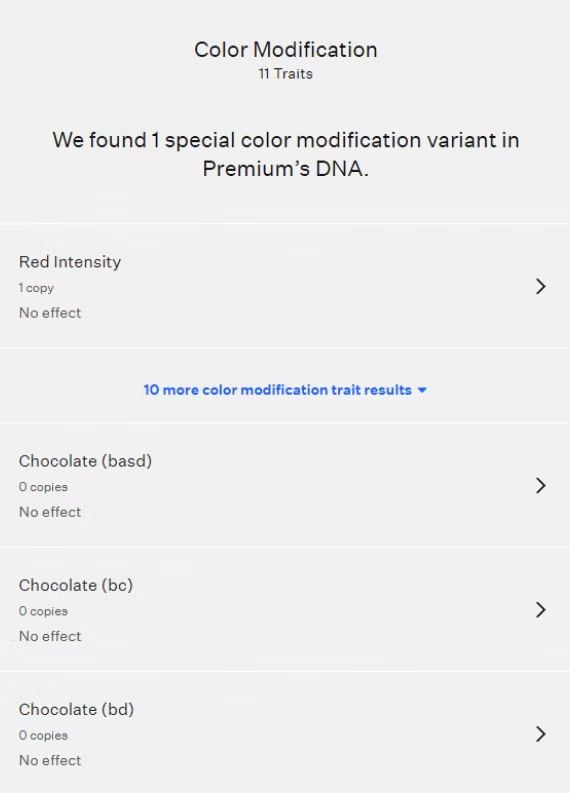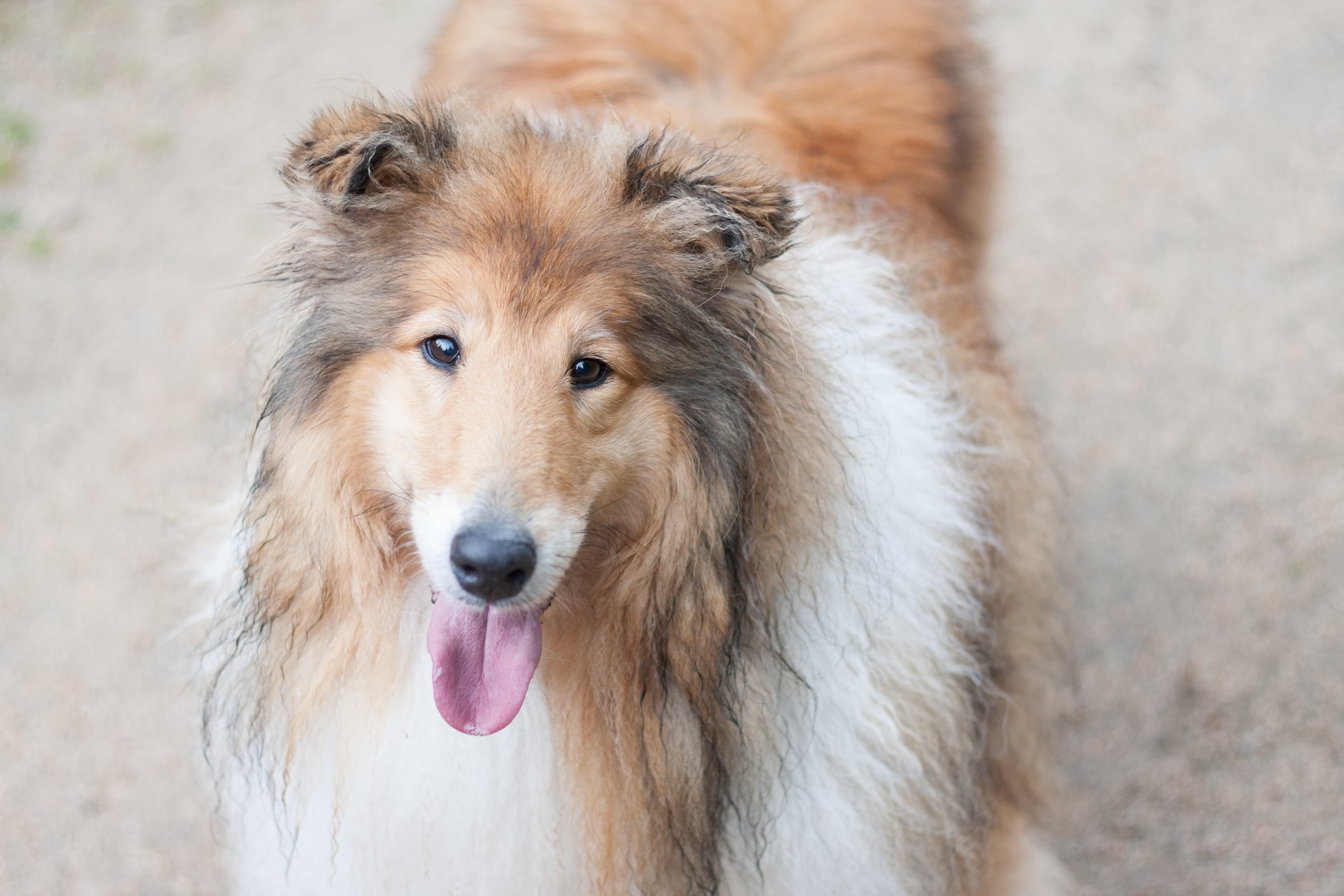At Wisdom PanelTM, our mission is to strengthen the bond between pets and their people through genetic insights. This is why we’re so excited about the latest update to our dog DNA tests!
Using the latest science and technology, we continue to deliver the most meaningful results to pet parents and breeders alike. With this new release, our dog DNA panels screen for and provide information on more genetic health conditions and traits than any other DNA test.
Let’s dive into some of the highlights.
Additional health conditions and traits
Screening for more health conditions enables you and your veterinarian to stay on top of your dog’s care throughout their life. And trait information helps you understand your furry friend even better.
Following are a few of the new variants included in our line-up of dog DNA tests:
- Chondrodystrophy (CDDY) and Intervertebral Disc Disease (IVDD) Risk: CDDY is a skeletal disorder characterized by shortened limbs and abnormal early degeneration of the spinal discs, or intervertebral disc disease (IVDD), which predisposes a dog to disc herniation, and is prevalent in many breeds, including Cardigan Welsh Corgis, Cavalier King Charles Spaniels, Skye Terriers, and Bavarian Mountain Hounds
- Hereditary Calcium Oxalate Urolithiasis, Type 1: a genetic disorder that greatly increases the risk for urinary stones composed of calcium oxalate to form within the kidneys or bladder, and can be found in American Staffordshire Terriers, Rottweilers, Border Collies, Havanese, and others
- Cocoa (Discovered in the French Bulldog): a trait associated with a dark brown coat coloration and dark amber eyes in French Bulldogs
- Roan (Linkage variant): a mottled coat patterning caused by an intermingling of white and pigmented hairs, and is a trait common in Australian Cattle Dogs, German Shorthaired Pointers, English Cocker Spaniels, and more!
The inclusion of these and other variants makes Wisdom Panel the most advanced, most complete dog DNA test available. If you’re curious for a peak behind the scenes, learn more about how we perform pet DNA testing on Our Science page.

Product summary
Wisdom Panel Essential: 30 genetic health disorders and 50+ traits
Wisdom Panel Premium: 260+ genetic health disorders and 50+ traits
MyDogDNA: 270+ genetic health disorders and 50+ traits
How Wisdom Panel (and you) helped discover new health and trait variants
It’s official: Wisdom Panel has tested more than 4 million pets worldwide. Each one of those DNA tests powers our research and gives our team of scientists valuable data they can use to advance pet genetics and, ultimately, precision pet care. In addition, the data we collect and analyze powers collaboration with other researchers who also seek to uncover new insights that enable pets to live longer, healthier lives.
So, if you’re one of the millions of pet parents who trusted Wisdom Panel with your dog’s DNA test, your pup may have contributed to the discovery of the following variants:
- Pituitary Dwarfism (Discovered in the Karelian Bear Dog). A hormone disorder characterized by stunted growth and coat abnormalities, such as a retained puppy coat or excessive coat thinning
- Progressive Retinal Atrophy (Discovered in the Lapponian Herder). An inherited disorder that results in degeneration of the light sensing retina at the back of the eye, leading to progressive vision loss and eventual blindness
- Sensorineural Deafness (Discovered in the Rottweiler). A disorder characterized by hearing loss in both ears by the time an affected dog is a few months of age
- Startle Disease (Discovered in the Miniature American Shepherd). A progressive neurological disorder characterized by sudden and exaggerated startle responses to unexpected sensory stimuli, such as touch or sound
- Widow’s Peak—also known as Ancient Red—(Discovered in Ancient dogs). A trait that is associated with an increase in the ratio of red (phaeomelanin) to dark pigment (eumelanin) in the coat when expressed
Fun facts about Ancient Red: The Ancient Red variant is as rare as it is old. Researchers have discovered the variant in the DNA samples of prehistoric Siberian and South-Eastern European dog remains dating back more than 10,000 years ago. It’s believed to be one of the earliest dog-specific coat colors humans selected for during dog domestication. Less than 2% of dogs tested carry this variant. (So if yours is one of them, you have a very special pup!)
A more streamlined user experience
Before releasing the new versions of our dog DNA panels, we took the opportunity to update the names of certain disorders and traits to increase clarity and allow for a more orderly display of information within the DNA report.
For example:

For disorders with multiple genetic variants screened, the names of each genetic variant will include the breed or breed type in which it was discovered, in order to provide clarity of breed relevance. In this example, Craniomandibular Osteopathy is now reported as Craniomandibular Osteopathy (Discovered in Scottish Terrier breeds)—this is because three additional Craniomandibular Osteopathy variants are now included in the panel.
Within the Traits page of your Wisdom Panel report, you will find that your pet’s coat colors are now divided into base color variants, such as Dominant Black and Tan Points, and variants which can modify the base colors, like Chocolate and Dilution. These trait categories are called Coat Color and Color Modification, respectively.
Additionally, trait names will no longer include “Variant Number” but, instead, the tested allele (or genetic variant). By including the tested allele within the name displayed in the report, we can offer greater detail to breeders using this information in their breeding programs. But if you need a reference to the previous Variant Number name, don’t worry! The detailed trait page will still include the old name (e.g. Recessive Red Variant 1) for this reason.

Explore our products
Ready to dig further into your dog’s DNA and uncover more insights into their health and appearance? Check out our products for pet parents and breeders today.



